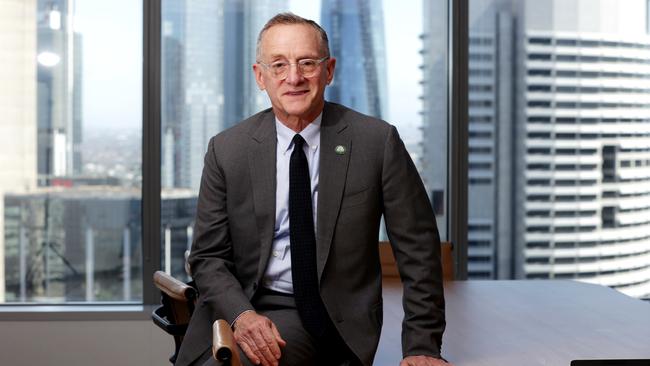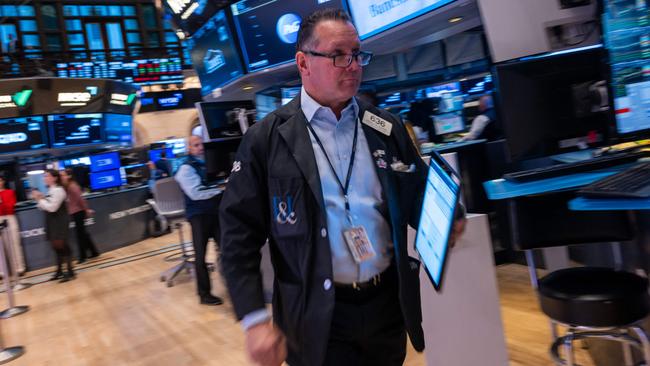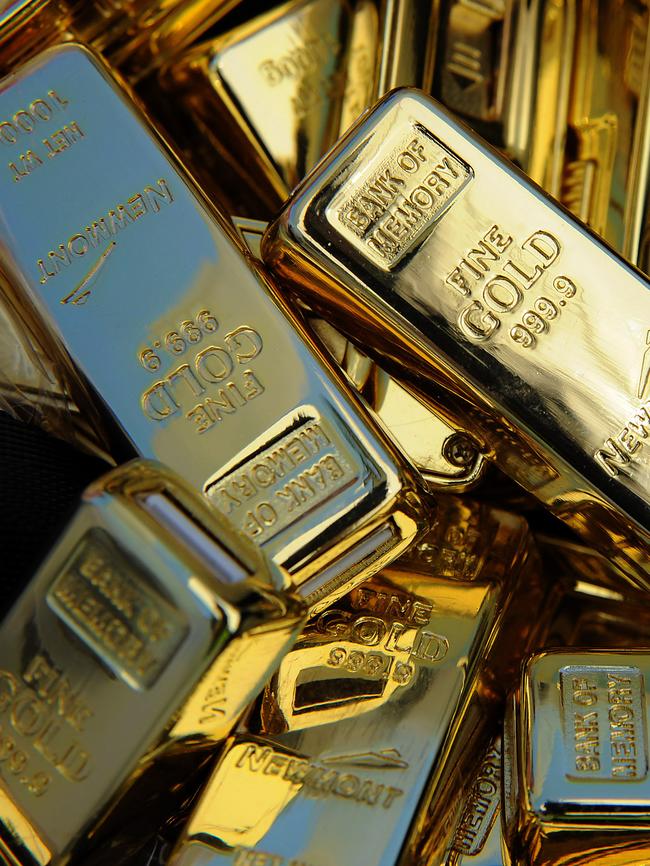Howard Marks on stock bubbles and gold: What will give first?
The legendary Oaktree investor makes the case during an Australian briefing that history is working against Wall Street repeating its rally.

Wall Street has hit as many as three record highs this year, although things were less rosy in the last two sessions, putting many on edge about whether the peak has been reached.
This was the setting for legendary Oaktree founder and chairman Howard Marks holding a private briefing in Australia to expand on his memo that was released shortly after Christmas that looked at market bubbles.
The briefing was organised by the Australian Israel Chamber of Commerce, and Marks was speaking via video link on Tuesday. After breakneck gains in each of the past two years, does Marks think the Wall Street party is coming to an end?
Just as he wrote in the January memo, there are warning signs of a frothy market, but he stopped short of declaring it a bubble. Even so, he says the chance are firm stacked against the market for a repeat performance this year and some sort of correction couldn’t be ruled out within the next year or two.

He cites recent JP Morgan research that highlights there have been five times in the past century when the S&P 500 rose by more than 20 per cent a year two years in a row. – The last two years being the fifth time. The Wall Street benchmark was up 23 per cent last calendar year and a whopping 25 per cent the year before, thanks mostly to the gains by the Magnificent Seven. That’s almost 50 per cent in two years.
Now you might say if stocks are unduly depressed, they should recover, and then maybe they can go on and enjoy appreciation at a good rate for some years. Yes, that’s true. But you know, stocks have not been unduly cheap,” Marks told the AICC briefing.
“We didn’t start from the depressed level. Stocks have made stunning advances, probably outstripping the increases in the companies. And so I think you can say the stocks are expensive”.
Again JP Morgan highlighted that in the four prior times when stocks rose 20 per cent or more two years in a row, the subsequent three years included – in Marks’ words – some stinkers.
This means “the generalisation is fair” that historically the market corrects after a strong performance, he says.
“That it happened in the past doesn’t mean it has to happen in the future, but it kind of conditions the odds”.
Does the prospect of AI and new powerful technology change the game?
“Well, the answer is obvious, yes. Of course, it can be different, and the world can change, and AI in particular, or the wonders of technology in general, can be so great that the world is that the whole world is revolutionised”.

“However, every bubble is based on the contention that this time is different, and you see, in the past, whenever stocks appreciated dramatically for a long period of time, it was followed by a correction”.
Inflation is not helping the case. Marks says it is stubborn and likely to stay so as several factors working against it.
Donald Trump’s tariffs are inflationary for consumers, he says. So too are large government deficits, which are stimulating the growing economy. At the same time, a push for de-globalisation and moving supply chains away from places like China reverses decades of trade that all helped to make prices for goods cheaper.
“It’s not going to be that easy to get it down,” Marks says of inflation.
All the shines
And gold? Marks has been writing since 2007 about his caution toward the metal as an asset class. Even as gold jumped more than 20 per cent last year and is up another 12 per cent, he retains the caution.
But his approach as a value investor and that is to try and figure out what an asset is worth, the next step is to decide whether that value is too low (good for buying) or too high (stay away).
There are lots of asset classes where you can think about the intrinsic value, Marks says. These include shares, companies or even buildings. What do they have in common? They all produce cash flows, which in turn can be valued.
But gold has surged to records as investors turn to the metal as a source of protection against negative events. Why do they do this? Because it has always worked. That’s not enough to get an investor like Marks onside.
“An ounce of gold, it doesn’t have any value. It only has a price, and it can fluctuate radically. There’s no foundation that comes from utility or cash flow. It’s just desire. And I believe that desire is not dependable”.




To join the conversation, please log in. Don't have an account? Register
Join the conversation, you are commenting as Logout